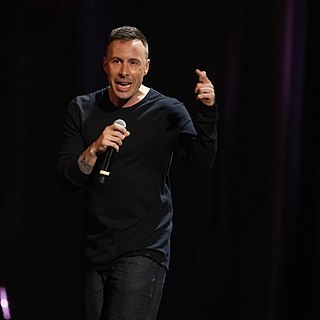A Quote by David Bayles
Art is like beginning a sentence before you know its ending.
Related Quotes
A sentence is like a tune. A memorable sentence gives its emotion a melodic shape. You want to hear it again, say it—in a way, to hum it to yourself. You desire, if only in the sound studio of your imagination, to repeat the physical experience of that sentence. That craving, emotional and intellectual but beginning in the body with a certain gesture of sound, is near the heart of poetry.
To understand oneself requires patience, tolerant awareness; the self is a book of many volumes which you cannot read in a day, but when once you begin to read, you must read every word, every sentence, every paragraph for in them are the intimations of the whole. The beginning of it is the ending of it. If you know how to read, supreme wisdom is to be found.
Writing is linear and sequential; Sentence B must follow Sentence A, and Sentence C must follow Sentence B, and eventually you get to Sentence Z. The hard part of writing isn't the writing; it's the thinking. You can solve most of your writing problems if you stop after every sentence and ask: What does the reader need to know next?
I think one is naturally impressed by anything having a beginning a middle and an ending when one is beginning writing and that it is a natural thing because when one is emerging from adolescence, which is really when one first begins writing one feels that one would not have been one emerging from adolescence if there had not been a beginning and a middle and an ending to anything.



































